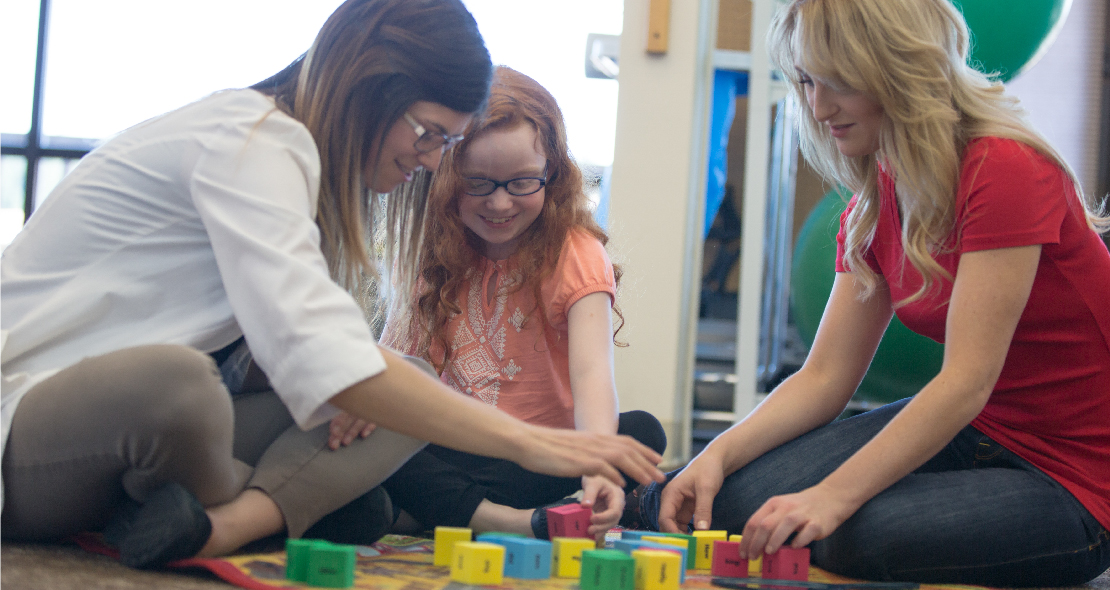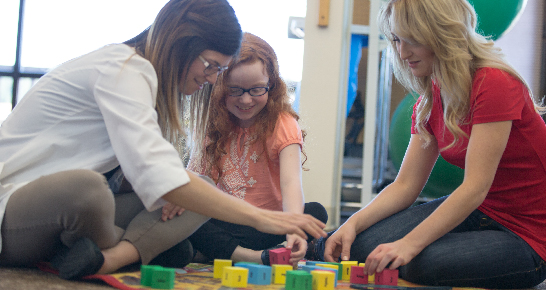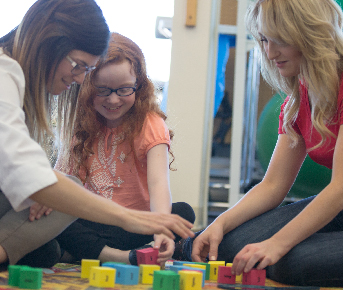


Occupational Therapy
Therapy to enhance daily life
At Harmony Pediatric Therapy, our occupational therapists specialize in helping children develop tools, establish a strong foundation of skills and achieve their full potential.
We use current evaluation tools and clinical standards to determine the appropriate treatment for each child. We start by communicating directly with parents/guardians to determine the family's goals and priorities. Then, through individualized evaluations, our therapists find solutions to help maximize independence and increase participation in daily activities, including self-care, learning and play
Our occupational therapists are experienced in helping children in the following areas:
- Sensory integration, which helps children organize information from each of their senses to safely interact within their natural environments.
- Fine motor skills to increase strength and develop functional grasp and skills toward play, handwriting and daily tasks.
- Gross motor skills (used to move the arms, legs, torso) to promote strength, balance, coordination and endurance toward safe and independent play.
- Executive function development to help the child use critical thinking such as problem solving, organization, planning, sequencing, self-monitoring, and mental flexibility.
- Social skill development to foster positive interactions, relationship building, awareness and self-advocacy.
- Self-help to develop tools and maintain positive behaviors in all environments (e.g., instead of hitting others or acting out, using positive ways to deal with anger, such as writing about feelings or participating in a physical activity).
- Life skills to learn basic tasks such as bathing, getting dressed, brushing teeth and independently feeding.
- School readiness to help the child meet the tasks and environmental demands of school.
Our occupational therapy program can benefit children with conditions including:
- Sensory processing disorder
- Central auditory processing disorder
- Attention deficit disorders
- Autism spectrum disorders
- Genetic syndromes
- Developmental delays
- Learning disabilities
- Hypotonia
- Gross, fine and visual-motor concerns
- Motor-planning and coordination issues
- Feeding challenges